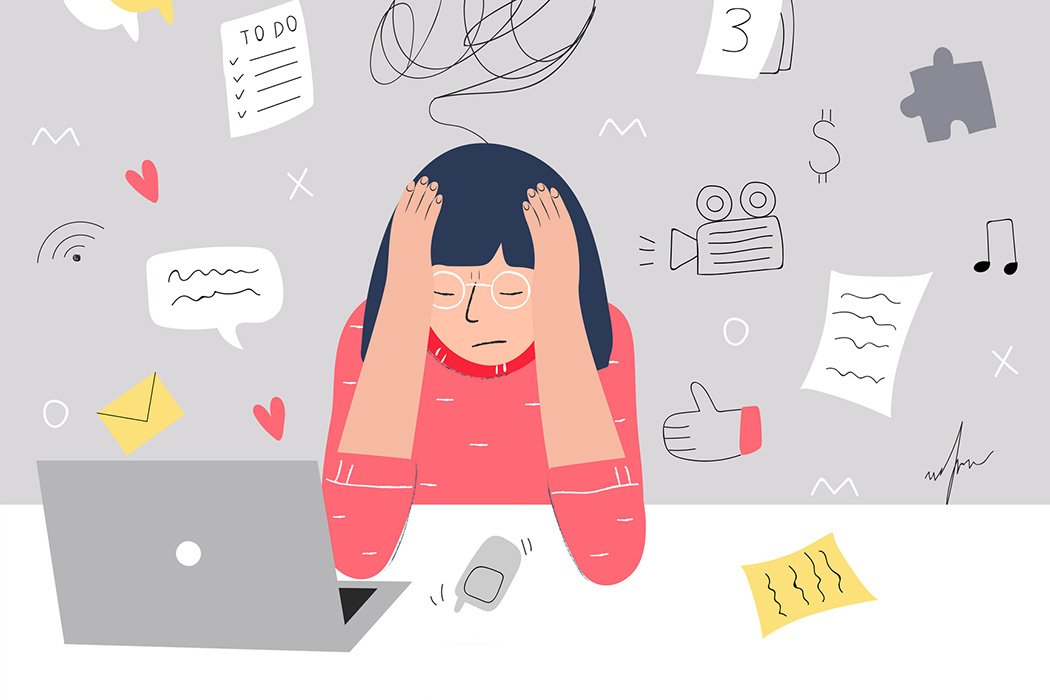[ad_1]
This article discusses the difference between ADHD and laziness and how to tell the two apart. It also guides seeking help and support for ADHD symptoms. The article aims to offer clarity and understanding for those struggling with these issues.
How can I tell if I have ADHD?
ADHD, or Attention Deficit Hyperactivity Disorder, is a neurodevelopmental disorder that can have a significant impact on a person’s daily life. Symptoms of ADHD include inattention, hyperactivity, and impulsivity. If you find that you often struggle to stay focused on tasks, are easily distracted, have difficulty organizing or completing tasks, and frequently forget things, it may be a sign of ADHD. Additionally, if you often feel restless, have difficulty sitting still, and are overly talkative, these could also be symptoms of ADHD.
It’s important to note that everyone experiences these symptoms from time to time, but for individuals with ADHD, these symptoms are chronic and significantly impact their daily functioning. If you suspect that you may have ADHD, it’s important to seek a professional evaluation from a mental health professional or healthcare provider.

Information overload and multitasking problems concept. Flat and hand-drawn vector illustration
Am I just lazy?
Lazy behavior is often associated with a lack of motivation or effort. However, it’s important to understand that laziness is a behavior, not a medical condition. If you’re struggling with laziness, you may find it difficult to start or complete tasks, lack the energy or enthusiasm to engage in activities or responsibilities, and procrastinate or avoid responsibilities altogether.
While it’s natural to experience periods of feeling unmotivated or lazy, persistent laziness that interferes with your daily life and responsibilities could be a sign of an underlying issue, such as depression or other mental health concerns. It’s important to reflect on your behaviors and feelings and seek support if you’re struggling to address them independently.
Seeking Help and Support
If you suspect that you may have ADHD or are struggling with laziness, it’s essential to seek help and support. Start by scheduling an appointment with a mental health professional or healthcare provider. They can assess your symptoms, provide a diagnosis, and offer guidance and support for managing ADHD or addressing the underlying causes of laziness.
Additionally, seeking help from a therapist or counselor can provide valuable insight and support as you navigate your symptoms and work towards improving your mental health. Therapy can provide coping strategies, skill-building, and a safe space to address any underlying concerns contributing to your symptoms.
Conclusion
In conclusion, it’s important to recognize the differences between ADHD and laziness. While both can manifest as difficulties with focus, motivation, and completing tasks, it’s essential to understand that ADHD is a neurodevelopmental disorder that requires professional assessment and support. On the other hand, laziness is a behavior that can be influenced by a range of factors, including mental health concerns and personal habits. By seeking help and support, individuals can gain clarity and guidance in addressing their symptoms and improving their overall mental health.

Innovation Concept on Blackboard
FAQs
Can laziness be a symptom of ADHD?
While it’s natural to feel unmotivated or disinterested at times, chronic procrastination and avoidance of responsibilities can be symptoms of ADHD. It’s important to consider these behaviors in the context of other ADHD symptoms and seek a professional evaluation if you suspect you may have ADHD.
What should I do if I suspect I have ADHD?
If you suspect you may have ADHD, it’s important to seek a professional evaluation from a mental health professional or healthcare provider. They can assess your symptoms, provide a diagnosis, and offer guidance and support for managing ADHD.
How can I address feelings of laziness?
Addressing feelings of laziness may require exploration of underlying factors, such as mental health concerns or personal habits. Seeking support from a therapist or counselor can provide valuable insight and guidance in addressing these feelings and improving your overall mental health.
What are some strategies for managing ADHD symptoms?
Managing ADHD symptoms may involve a combination of medication, therapy, and lifestyle adjustments. Developing organizational strategies, setting clear goals, and seeking support from mental health professionals can all contribute to effectively managing ADHD symptoms.
Is laziness a sign of a mental health concern?
Chronic laziness that interferes with your daily life and responsibilities can be a sign of an underlying mental health concern, such as depression. It’s important to reflect on your behaviors and feelings and seek support from a mental health professional if you’re struggling to address them on your own.
[ad_2]







